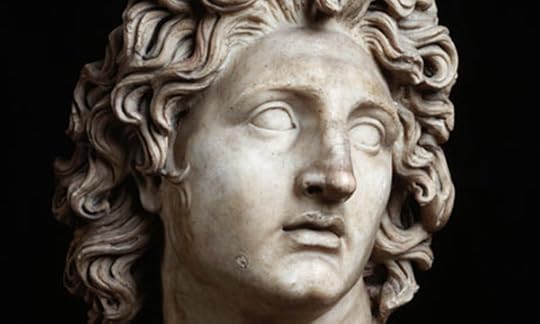What do you think?
Rate this book


430 pages, Paperback
First published January 1, 150


”Most of them wept. They came to Alexander’s tent and called down every blessing upon him for allowing them to prevail – the only defeat he had ever suffered.”
“There is no part of my body but my back which has not a scar.”
”He had great personal beauty, invincible power of endurance, and a keen intellect; he was brave and adventurous, strict in the observance of his religious duties, and hungry for fame. Most temperate in the pleasures of the body, his passion was for glory only, and in that he was insatiable. He had an uncanny instinct for the right course in a difficult and complex situation, and was most happy in his deductions from observed facts. In arming and equipping troops and in his military dispositions he was always masterly. Noble indeed was his power of inspiring his men, or filling them with confidence, and in the moment of danger, of sweeping away their fear by the spectacle of his own fearlessness. When risks had to be taken, he took them with the utmost boldness, and his ability to seize the moment for a swift blow, before his enemy had any suspicion of what was coming, was beyond praise. No cheat or liar ever caught him off his guard, and both his word and his bond were inviolable. Spending but little on his own pleasures, he poured out his money without stint for the benefit of his friends.”
It is said that at the sight of Alexander and his army they merely stomped on the ground with their feet. When Alexander inquired, through interpreters, what the gesture meant, they replied, “King Alexander, each man can have only so much land as this on which we are standing. You are human like the rest of us, except that in your restlessness and arrogance you travel so far from home, making trouble for yourself and others. Well, you will soon be dead and will have as much land as will suffice to bury your corpse.” (7.1.6)
Alexander halted with his shield-bearers and infantry companions and asked the man if he needed anything. Diogenes replied that he needed nothing, other than for Alexander and his men to stand aside and stop blocking his sunlight. (7.2.1)
Alexander’s men were wandering at length over land and sea for no good reason, nor was there any limit to their wanderings. In any event, he desired nothing Alexander had the power to bestow, nor was he afraid to be deprived of anything under Alexander’s control. (7.2.3)